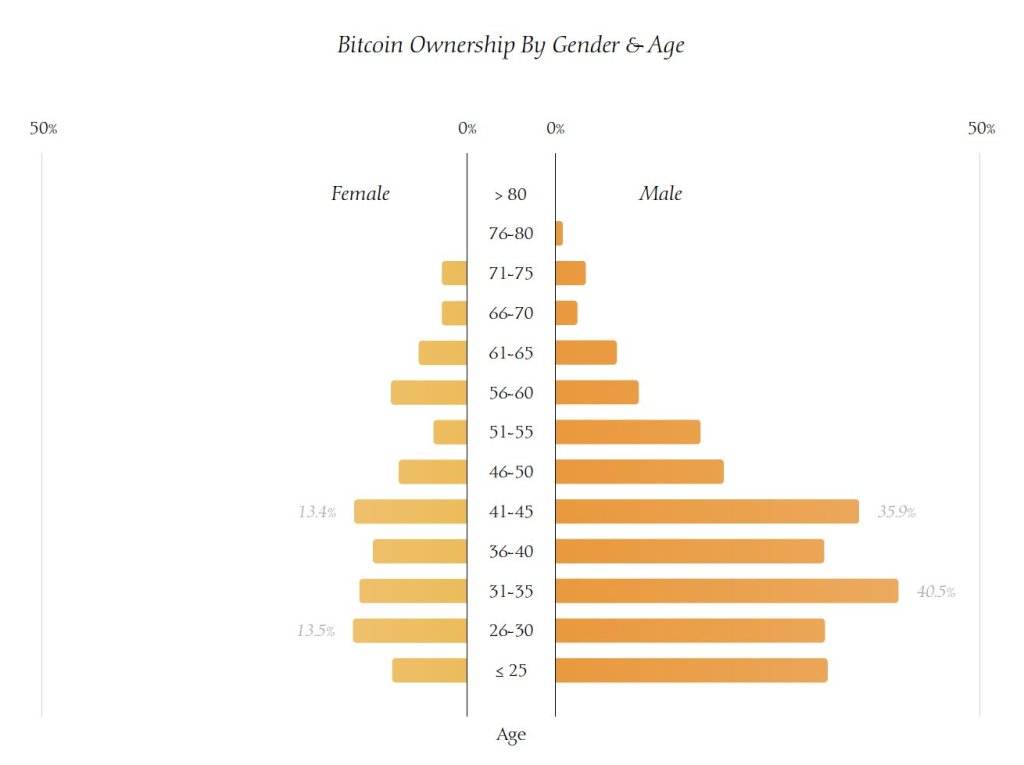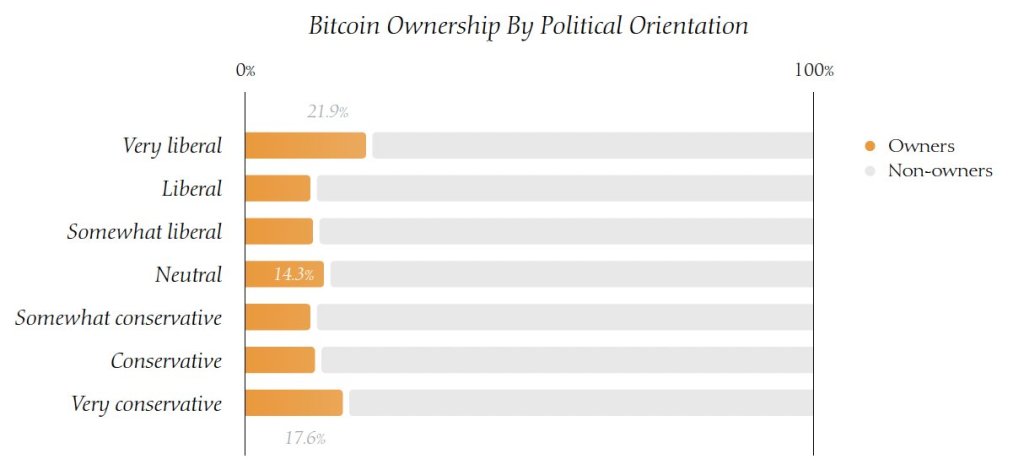Surprising Insights: Who Really Owns Bitcoin in America?
23.07.2024 17:00 1 min. read Alexander Stefanov
A recent study by the Nakamoto Institute offers a fresh perspective on who holds Bitcoin in the United States, upending several common assumptions about cryptocurrency investors.
The research, directed by Troy Cross and Andrew Perkins, surveyed over 3,500 American adults to understand the demographic and political profile of Bitcoin owners.
The findings challenge the stereotype that Bitcoin enthusiasts are predominantly right-leaning or libertarian.
Contrary to this view, the study found that Bitcoin owners represent a broad spectrum of political beliefs, including those who are very liberal.

“We discovered that Bitcoin ownership spans various political orientations, not just those on the right,” noted Cross. This broad political diversity was unexpected, as many believed Bitcoin was mostly favored by conservative or libertarian individuals.

The study also found that Bitcoin owners are generally younger and predominantly male, but political and moral values do not strongly influence ownership.
Instead, the research highlights that what matters most is an individual’s knowledge about Bitcoin and their perception of its usefulness and trustworthiness. “The key factors linked to Bitcoin ownership are understanding the cryptocurrency and having a positive view of its utility,” Cross explained.
Overall, the research indicates that Bitcoin owners are not confined to any specific political or demographic group but are defined by their informed and favorable attitude towards the cryptocurrency.
-
1
Ripple Faces Legal Setback as Court Rejects Bid to Ease Penalties
26.06.2025 16:54 1 min. read -
2
Coinbase Surges 43% in June, Tops S&P 500 After Regulatory Wins and Partnerships
29.06.2025 21:00 2 min. read -
3
Ripple Has Applied for a National Banking License
03.07.2025 7:00 2 min. read -
4
What Will Happen With the Stock Market if Trump Reshapes the Fed?
29.06.2025 13:00 2 min. read -
5
Barclays Blocks Crypto Credit Card Payments in Latest Blow to Retail Investors
26.06.2025 8:00 2 min. read
Charles Schwab to Launch Bitcoin and Ethereum Trading Soon, CEO Confirms
Charles Schwab is preparing to roll out spot Bitcoin and Ethereum trading, according to CEO Rick Wurster during the firm’s latest earnings call.
BlackRock Moves to Add Staking to iShares Ethereum ETF Following SEC Greenlight
BlackRock is seeking to enhance its iShares Ethereum Trust (ticker: ETHA) by incorporating staking features, according to a new filing with the U.S. Securities and Exchange Commission (SEC) submitted Thursday.
IMF Disputes El Salvador’s Bitcoin Purchases, Cites Asset Consolidation
A new report from the International Monetary Fund (IMF) suggests that El Salvador’s recent Bitcoin accumulation may not stem from ongoing purchases, but rather from a reshuffling of assets across government-controlled wallets.
Sberbank Moves to Dominate Russia’s Crypto Custody Sector
Sberbank, Russia’s largest state-owned bank, is preparing to launch custody services for digital assets, marking a significant expansion into the country’s evolving crypto landscape.
-
1
Ripple Faces Legal Setback as Court Rejects Bid to Ease Penalties
26.06.2025 16:54 1 min. read -
2
Coinbase Surges 43% in June, Tops S&P 500 After Regulatory Wins and Partnerships
29.06.2025 21:00 2 min. read -
3
Ripple Has Applied for a National Banking License
03.07.2025 7:00 2 min. read -
4
What Will Happen With the Stock Market if Trump Reshapes the Fed?
29.06.2025 13:00 2 min. read -
5
Barclays Blocks Crypto Credit Card Payments in Latest Blow to Retail Investors
26.06.2025 8:00 2 min. read


